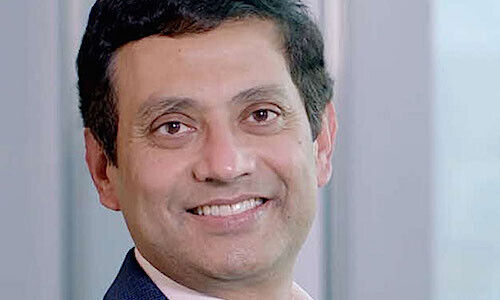Neobanks have an uphill battle ahead of them, DBS’ Ajay Mathur told finews.asia, highlighting incumbent lenders’ presence in both the physical and the digital – the «phygital» – as a critical advantage.
The lack of a physical presence, short track records, limited offerings and other factors will act as hurdles for digital-only banks to overcome, according to DBS’ Hong Kong head of consumer banking group and wealth management Ajay Mathur in a conversation with finews.asia.
«Banks and other financial service providers used to compete along price, product and convenience but increasingly so, the competition has moved away from these elements towards digital speed, simplicity and contextuality,» Mathur said.
«Phygital Strategy»
Although many banks are trimming property, including DBS which has offloaded office space in both Hong Kong and Singapore, Mathur underlines that retaining a client-facing real estate remains critical alongside digital presence – a «phygital» presence.
This is not merely for optics or unwilling adopters of technology but to capture opportunities from both simple financial needs that can be executed online, such as a simple single stock trade, as well as more complex ones offline, such as succession or legacy planning.
«If we are able to smoothly deliver business online and offline, we can create a customer experience that can truly differentiate us,» Mathur says. «A ‘phygital’ strategy is our key differentiator.»
Robo-Analysts
Even in the field of technology, Mathur said there is more to be desired from neobanks.
Although some virtual banks are challenging traditional lenders in portfolio management capabilities – Stashaway, for example, claims to have superior discretionary mandate performance at much lower fees – Mathur underlined that many of such offerings are static in nature which, alone, is insufficient to meet client needs, especially in Asia’s market of hands-on investors.
«It’s very easy to create a so-called robo advisor. Many fintechs already have offerings where they match clients with investment strategies based on a survey that assesses risk profile,» he explains. «What is harder to create is robo-analysts. Robo-analysts can map your actual holdings against your profile and risk appetite to provide advice for clients to make actual transactions.»
«No Vintage»
And should virtual banks achieve a sufficient threshold in their capabilities, years of track record will still be required before broad confidence from the market can be achieved.
«We have spent many years and resources to develop brand and trust,» Mathur said. «Money is a very complex and emotional issue. It’s not something you can easily hand over to a company with no vintage.»
«We Welcome Competition»
Nonetheless, Mathur acknowledges that it is still early days and, in fact, attributes some of the industry’s digital enhancements to the emergence of virtual banks.
«We welcome competition from fintechs,» he said, adding that newly licensed digital lenders in Hong Kong have achieved a «credible start» in acquiring new clients and assets.
«They’ve kept peer banks on their toes and brought about nice improvements in customer experience.»
Tech Investments
Within DBS, tech investments are now strategically focused on three areas: data, artificial intelligence and ecosystems.
In addition to transforming its capabilities – seeking data to better understand clients and applying this via artificial intelligence to enhance user experience, for example – the bank is also transforming its role.
«Our traditional role is to act as a pipeline connecting financial services between the bank and a customer,» Mathur said. «But as we increasingly view ourselves less as a bank and more as a tech firm, we’ve been focused more on developing ecosystems. Rather than acting as a pipeline, we want to be a platform not only to deal with our customers but to deal with customers of our partners. This can effectively increase our ring of influence.»



























